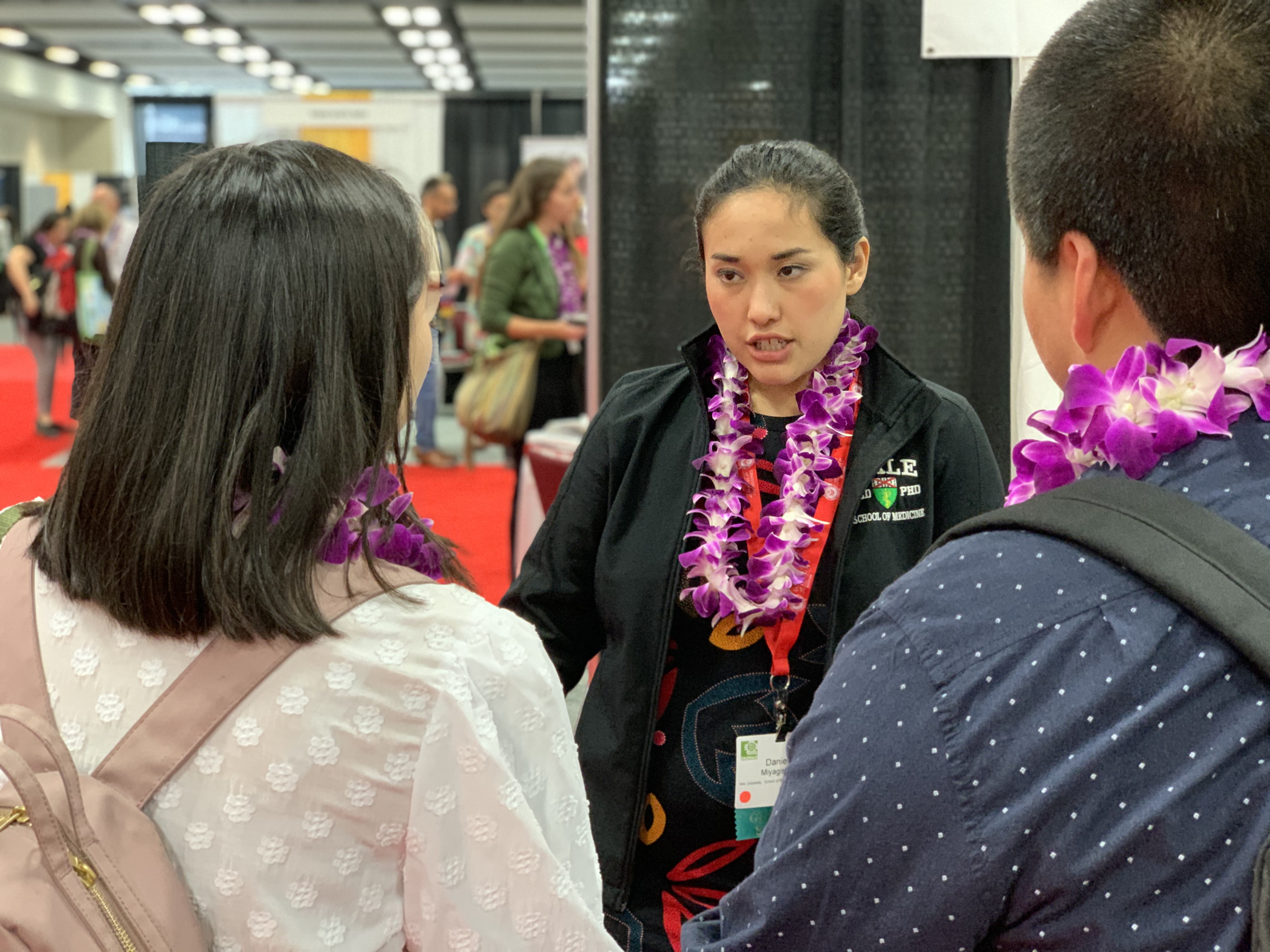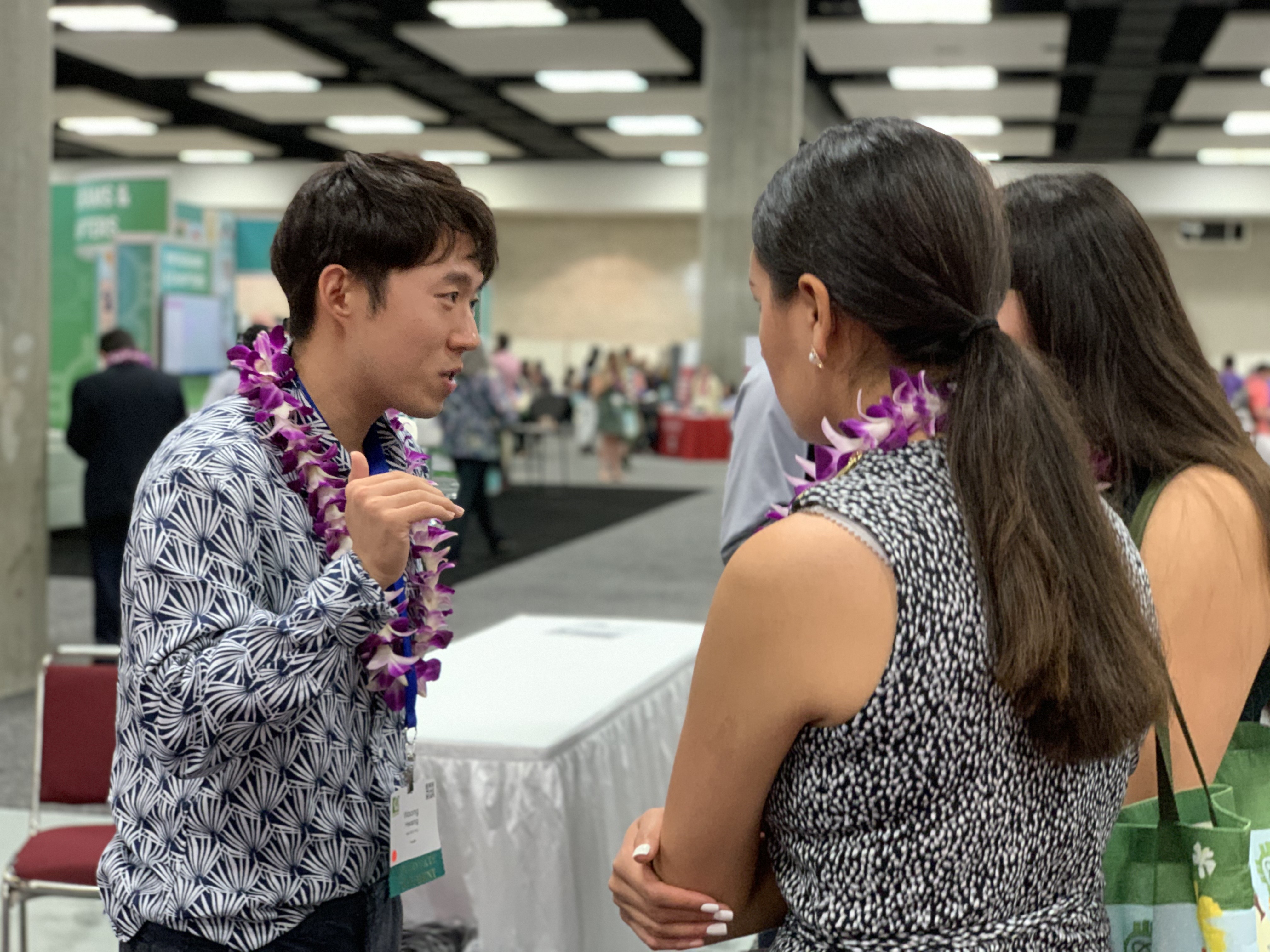
It is precisely this ethos that embodies the mission of SACNAS: creating a community for underrepresented minorities and underprivileged students to learn from each other and learn from the “SACNASita” alumnae who model the success that they themselves can achieve. Returning to SACNAS 2019 in Honolulu, HI, this time representing Yale School of Medicine as a fifth-year MD-PhD student was an incredibly powerful experience. Most importantly, I had the opportunity to talk with countless nervous and curious students and tell them that “I never thought I would be talking to you here from this side of the table, yet here I am! You can do it too—don’t let the fear of failure stop you from trying in the first place.” The majority of students I met were just like me only five years ago: excited about science, intrigued about pursuing an MD-PhD, but not believing that they could realistically be accepted. I met so many young people just like me—from all races and ethnicities, with diverse backgrounds and personal stories from New Mexico, Utah, and Montana and more. So many questions of their questions were the same ones I had: “What is the best way to get clinical exposure if my school doesn’t have a medical school?” [Answer: Your local hospital or community doctor], “How can I get meaningful mentorship about what MD-PhD is about” [Answer: wonderful programs like Yale BioMED SURF, Weill Cornell’s Gateways to the Laboratory Program, Harvard SHURP].
On the last day of the meeting, I participated on the “Why MD-PhD?” panel with three other MD-PhD students from various MSTP programs. I talked about my mentors at Yale who are neurosurgeons and outstanding researchers at the same time whose work integrate and fully justify the need for both degrees. The answers to the panel question of “Is an MD-PhD program right for me?” are so personal and different for each person, and yet we all shared a conviction that for us, being trained in medicine AND research were necessary to do what we enjoy, achieve our ideal career goals and have the most impact. I really believe that meeting so many MD-PhD directors, other successful students and enthusiastic supporters like Sue who took the time at SACNAS 2014 and ABRCMS 2013 to convince me that I had what it takes to be accepted to the program allowed me to get to this point where now I can be the one that recruits future MD-PhD students to Yale.
[We are] creating a community for underrepresented minorities and underprivileged students to learn from each other and learn from the “SACNASita” alumnae who model the success that they themselves can achieve.
Danielle Miyagishima
